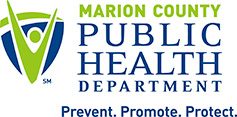When we think about vaccines, we often think of infants and small children, however staying up-to-date on immunizations are key to preventing illness throughout our lives. In fact, teenagers and young adults often get a number of vaccine-preventable diseases, including pertussis, measles, and meningitis. They need additional vaccines to help protect them from these illnesses. Health check-ups and sports or camp physicals can be good opportunity for your preteens and teens to get their recommended vaccines.
Adolescent immunizations protect against diseases such as:
Tdap – A booster to protect against tetanus, diphtheria, and pertussis should be given at the age 11-12 yrs, this is very important to protect against all 3 diseases. Td is then recommended every 10 years from this point on. The Td is given if the person should not get the pertussis. Information about Teens and Tdap Vaccine
Meningococcal vaccines (MCV4 and MenB) – Meningococcal conjugate vaccine (MCV4) is recommended for all preteens and teens 11-12 years old with a booster dose at 16 years old. The serogroup B Meningococcal vaccine (MenB) is recommended for teens 16-18 years old. Information about Meningococcal Vaccines
Human papillomavirus (HPV) vaccine– The HPV vaccine is recommended for children aged 11-12 years so that they are protected before exposure to the virus. The HPV vaccine is given as a 2-dose series before age 15. Both girls and boys should receive 2 doses of the vaccine to prevent HPV-related diseases. Teens 13 years and older who either did not get any or did not receive all of the HPV vaccines when they were young should complete the vaccine series. Adolescents who are older than 15 at the start of the vaccination series and young adults need 3 doses of HPV vaccine for pull protection. Information about HPV Vaccine
Is you child only half protected against HPV-related cancers?
Influenza (flu) vaccine – Everyone 6 months of age and older should get a flu shot every year. This vaccine contains several strains of protection and changes every year. This is why it is so important to receive one yearly. Information about Teens and Flu
Hepatitis A – Is recommended for preteens and teens. It is given in a two dose series spaced 6 months apart. Information about Hepatitis A Vaccine
Take this quiz to see what vaccines your adolescent needs!
Current Recommended Immunizations for adolescents (Age 7 -18 years)
Easy-to-Read Schedule for Preteens and Teens, 7-18 Years
English
Spanish
Is your child starting a new school year? Check the State of Indiana’s school requirements to make sure your child is ready!
&nsbp;
For more information, visit CDC.gov/vaccinate, Children’s Hospital of Philadelphia and Immunization Action Coalition



